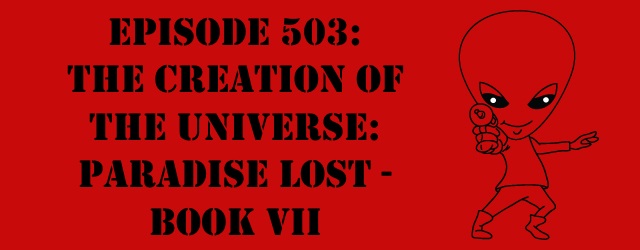Featuring Matt Anderson and Ben De Bono
In this episode we discuss Book VII of John Milton’s epic poem, “Paradise Lost.” This part of the poem lines up with the events of Genesis 1.
Donate to help the Water Fund here: https://www.onedayswages.org/thescifichristian
Standard Podcast


I have a question which I’m hoping Ben (or anyone) can answer. I seem to recall from lit class years ago that there’s a description in one of the classics about the damned in Hell being removed from the fires periodically and sent to a really cold region for a time. The reason for this is that they shouldn’t be allowed to acclimate to the heat lest the punishment of it seem less terrible over time. I thought this description was in Inferno but a recent round of googling and flipping through the pages turned up nothing. Maybe it’s in Paradise Lost.
This is actually kind of important to me because I’ve written a short story where a character references this bit and I’ll have to edit it out if it’s a false memory my crazy brain cooked up.
The idea of a “holiday from hell” for the damned is actually a fairly common idea that reoccurs in folklore/literature. C.S. Lewis’ The Great Divorce is centered on that idea, and for that matter so is Hamlet (Though in that case the ghost is coming from purgatory).
However, what’s unusual about what you’re mentioning is that the break from the flames isn’t a reprieve but actually a way to make the punishment worse.
I know there isn’t any such scene in Paradise Lost (in PL there aren’t actually any damned in hell outside of the demons). Inferno has a slightly similar concept wherein the 9th circle is frozen, but the damned confined there are there permanently so that’s still quite a bit different than what you’re referring to.
The book Hamlet in Purgatory lists quite a few examples of this trope in pre-Shakespearean literature, but I don’t recall any that match what you’re saying, though it’s certainly possible I’m simply not remembering correctly
Thanks Ben! I wonder where the idea came from. Maybe I should take credit for it! In any case, as I get older, I seem to accumulate these memories of things I “know” which turn out to be completely untrue.
Gotta add Hamlet in Purgatory to my must-read list.